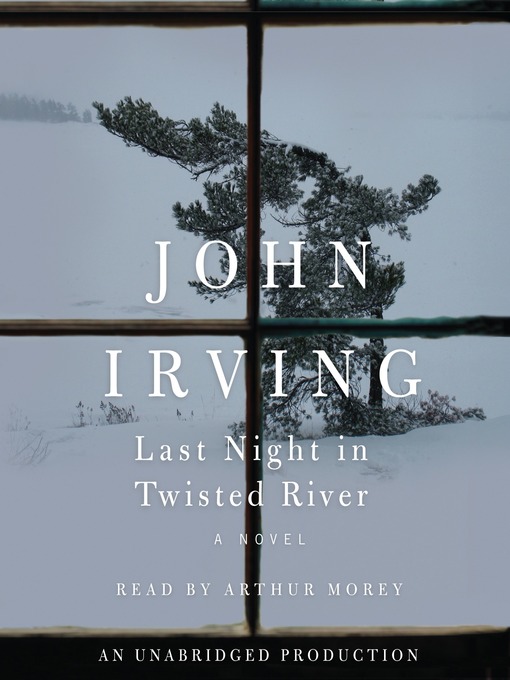
Last Night in Twisted River
A Novel
کتاب های مرتبط
- اطلاعات
- نقد و بررسی
- دیدگاه کاربران
نقد و بررسی

A master of denouement, John Irving weaves a multigenerational, multi-layered tale, by turns heartbreakingly funny and shockingly grisly. The story begins in a logging camp in Coos County, New Hampshire, in 1954, and moves across the years and the continent to end in Pointe Au Baril Station, Ontario, in 2005. Arthur Morey reads this complex novel with an impressive command of all the story's subtleties, holding the listener to rapt attention. With the artist's delicate touch, he weaves an aural tapestry, bringing to life the complex personalities of cook Dominic Baciagalupo; his writer son, Danny; and their earthy, loyal friend, Ketchum. Morey carries off the juxtaposition of horror and humor with subtle nuances that engage the listener in this engrossing story. N.E.M. (c) AudioFile 2009, Portland, Maine

August 24, 2009
Irving (The World According to Garp
) returns with a scattershot novel, the overriding themes, locations and sensibilities of which will probably neither surprise longtime fans nor win over the uninitiated. Dominic “Cookie” Baciagalupo and his son, Danny, work the kitchen of a New Hampshire logging camp overlooking the Twisted River, whose currents claimed both Danny's mother and, as the novel opens, mysterious newcomer Angel Pope. Following an Irvingesque appearance of bears, Cookie and Danny's “world of accidents” expands, precipitating a series of adventures both literary and culinary. The ensuing 50-year slog follows the Baciagalupos from a Boston Italian restaurant to an Iowa City Chinese joint and finally a Toronto French cafe, while dovetailing clumsily with Danny's career as the distinctly Irving-like writer Danny Angel. The story's vicariousness is exacerbated by frequent changes of scene, self-conscious injections of how writers must “detach themselves” and a cast of invariably flat characters. With conflict this meandering and characters this limp, reflexive gestures come off like nostalgia and are bound to leave readers wishing Irving had detached himself even more.

























دیدگاه کاربران